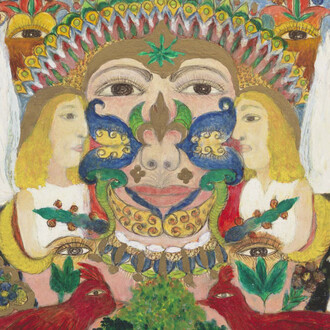With her exhibition Medium of Exchange, Sheida Soleimani examines how oil is interchangeable with currency and the corruption at the center of the petroleum industry. The film is a piece of absurdist theatre that utilizes mayhem and anxiety over wholly serious facts ripped from public speeches. On meticulously hand-crafted sets, Soleimani weaves real news and transcripts into a scripted sadomasochistic carnival where the rich get richer, as powerful figures dominate formidable colleagues. Between these powerful men gender and sexuality is both embellished and rendered fluid as a soap opera of love and sexual desires are at odds with backdrops of oil fields and refineries that dot the landscape of the resource-rich region. Actresses and actors wearing masks of each leader perform stereotypes of masculinity and femininity, but in the end each of their fetishes return to money.
In 2016, 14 OPEC (Organization of the Petroleum Exporting Countries) countries produced an estimated 44 percent of global oil production and possessed 73 percent of the world’s “proven” oil reserves giving OPEC a major influence on global oil prices. Two-thirds of OPEC’s oil production and reserves are in its six Middle Eastern countries that surround the oil-rich Persian Gulf. The five founding members; Iran, Iraq, Kuwait, Saudi Arabia and Venezuela, were later joined by nine other members: Qatar (1961); Indonesia (1962) Libya (1962); United Arab Emirates (1967); Algeria (1969); Nigeria (1971); Ecuador (1973) Angola (2007); and Gabon (1975). Economists often cite OPEC as a classic cartel that unites to diminish market competition. One commonality when you line-up these international titans of industry is that they are all men.
As an elite few receive untold millions, many civilians in OPEC countries struggle for civil liberties and human rights. Many oil rich countries have not used the proceeds from petroleum to diversify and strength their economies. Higher education, infrastructure, and culture are woefully underdeveloped, their citizens remain invisible, while areas around the petro companies flourish. The only way for citizens to break out, to work towards a transcendental moment, is to arm themselves with education. Sourcing from archives, media photographs, official documents, and conflicting news stories, Soleimani complies true news that can navigate language barriers and encourage citizens to demand what is rightfully theirs.
















